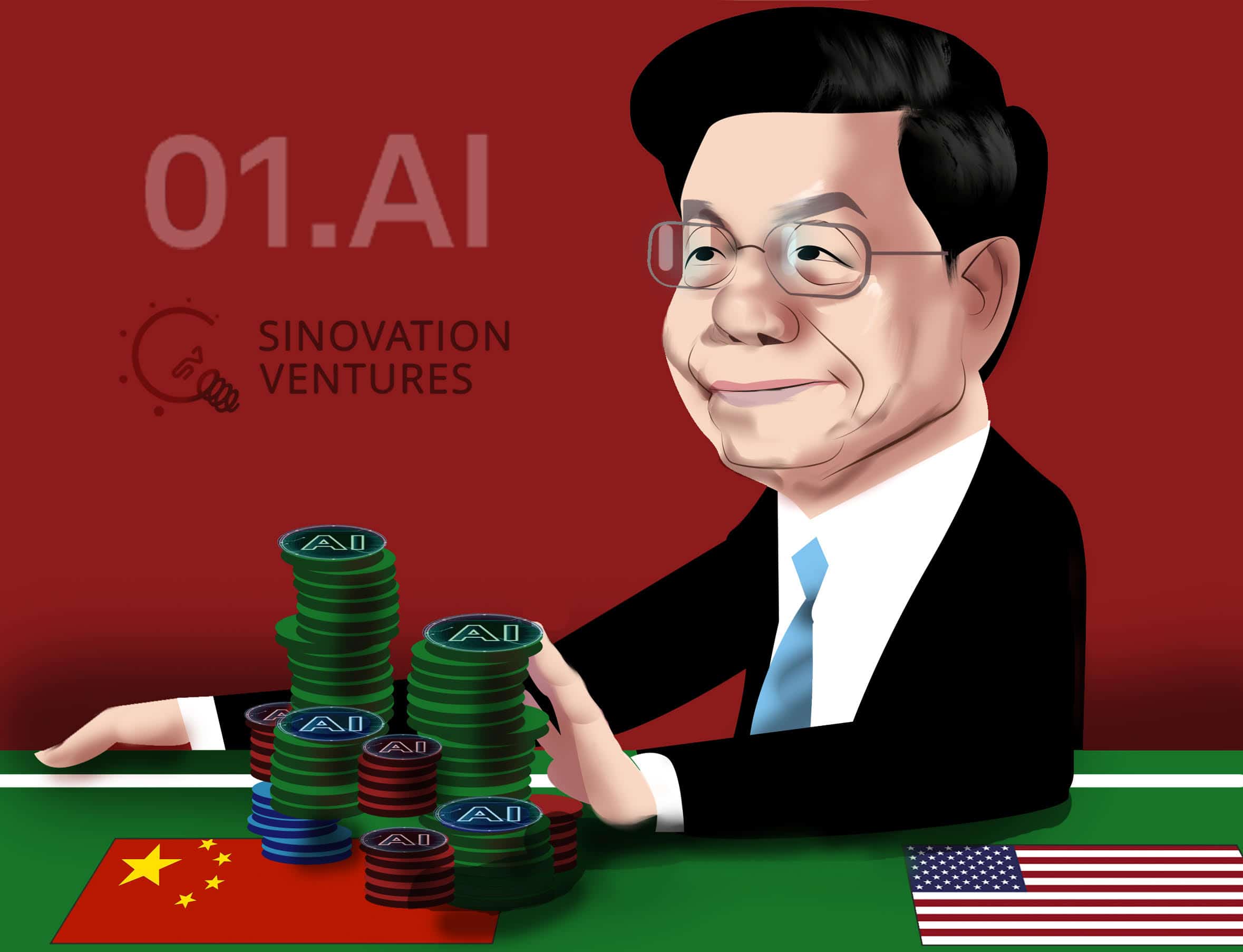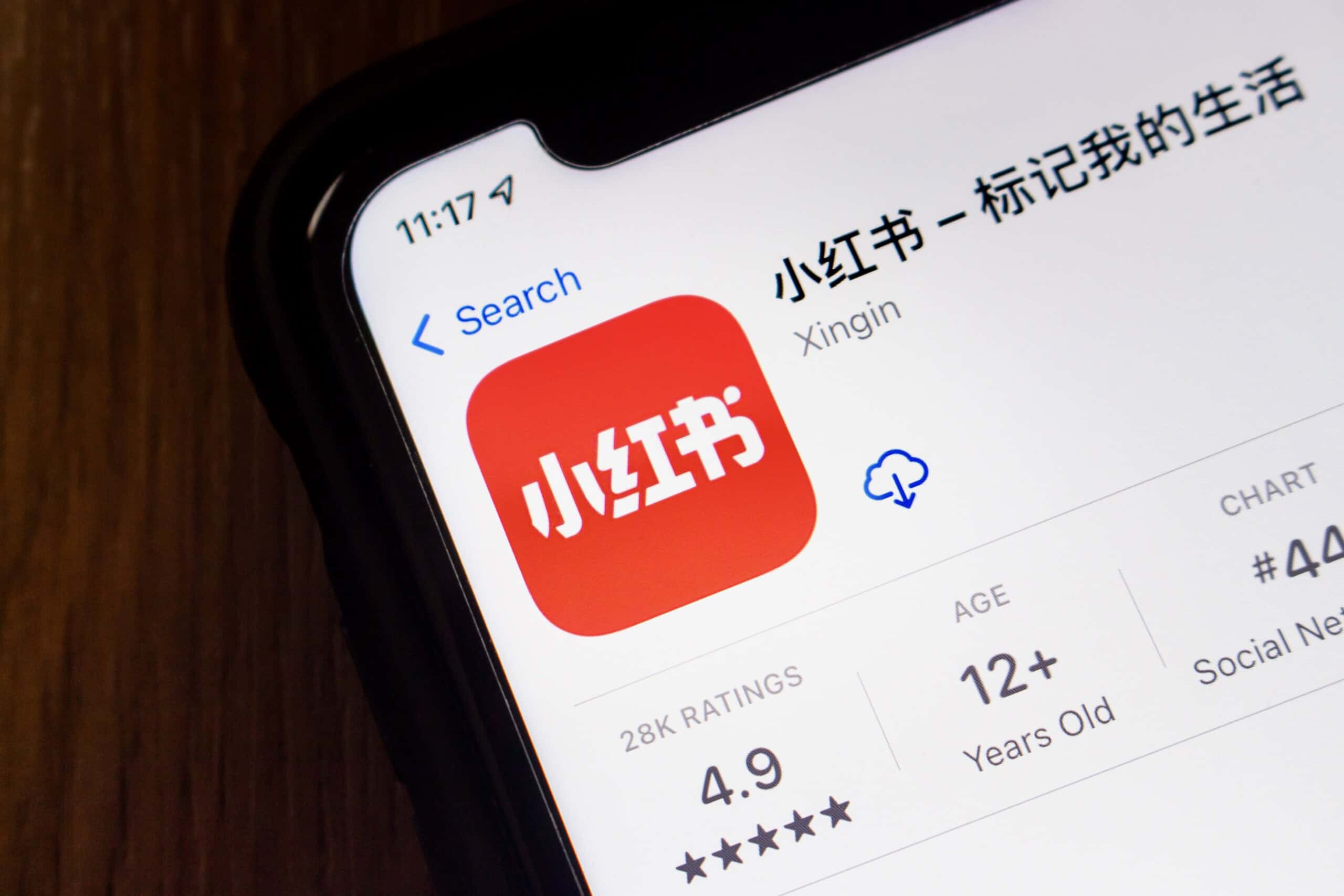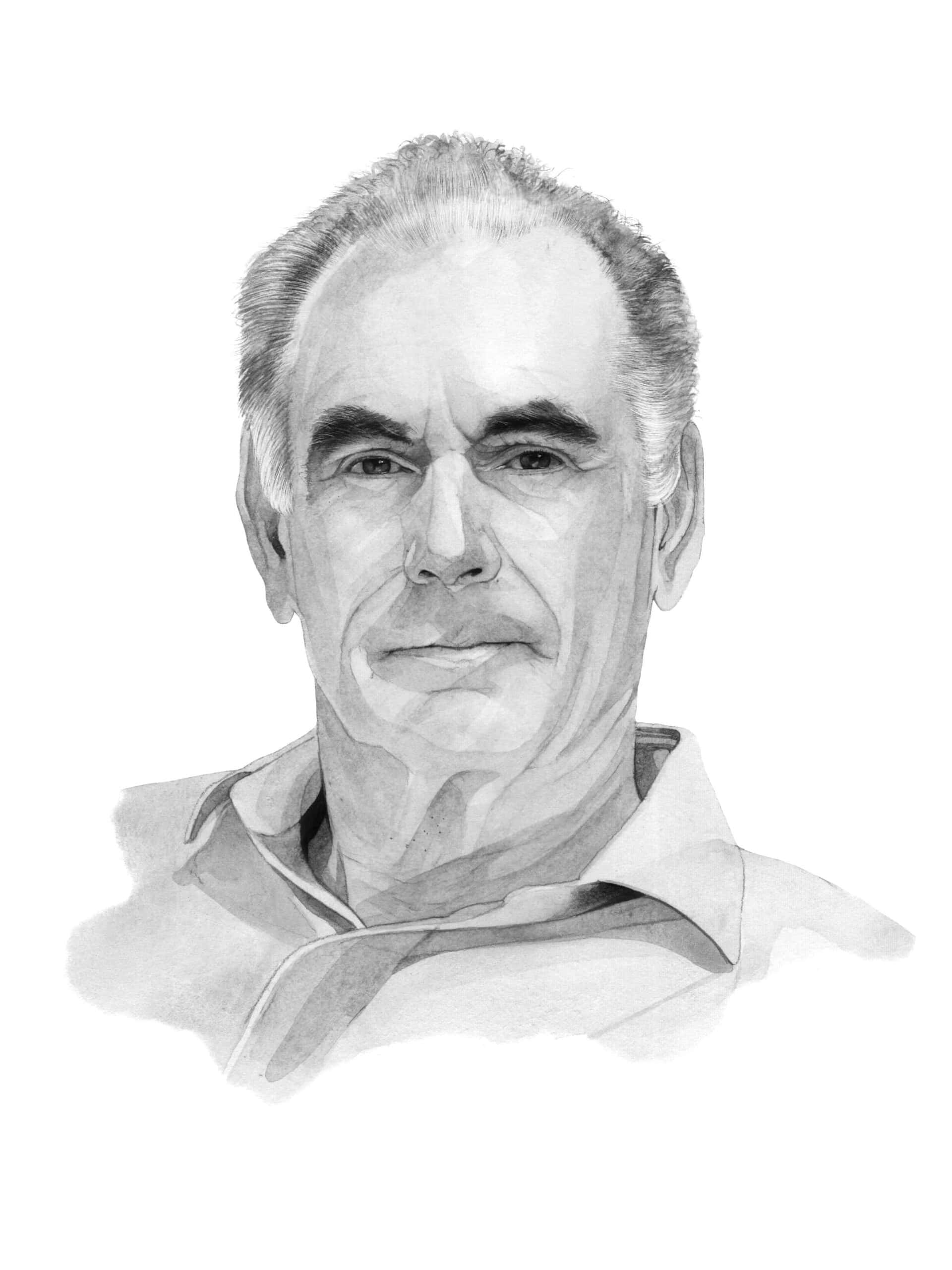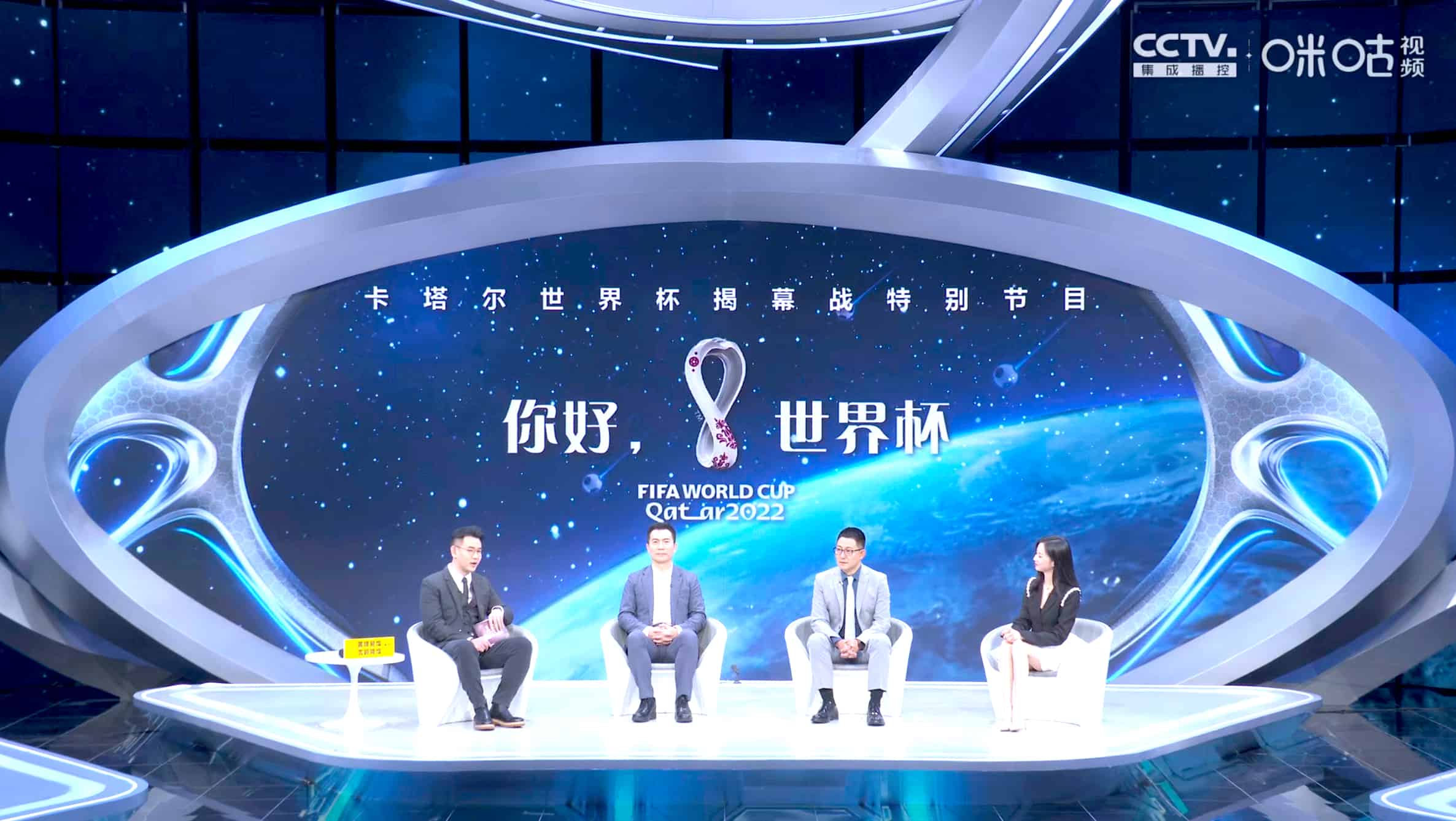
China’s national soccer team may have failed to make it to the World Cup — for the fifth time in a row — but the tournament in Qatar has still attracted huge online attention. Weibo posts using the hashtag “世界杯” (World Cup) have garnered upwards of one billion reads per day since the competition began.
When it comes to actually watching the games, viewers in China are more likely than not to be doing so by streaming via Migu Video, a subsidiary of the state controlled telecom giant China Mobile.
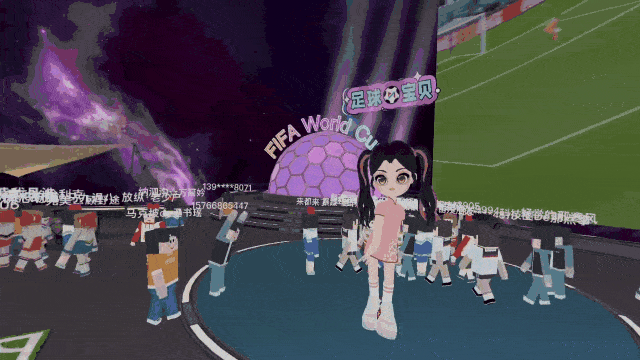
Migu Video has streamed World Cup content before — the 2018 World Cup that was hosted in Russia netted the platform more than 4.3 billion total views. Migu is looking to boost these numbers this time round: it’s launched a ‘Metaverse’ space, where fans can watch the games in virtual reality, and it has promoted its coverage with some big names, including the pop singer Jay Chou and former Chinese team manager Bora Milutinović.
This week, The Wire takes a closer look at Migu Video; the company’s beginnings, its bid for sports streaming success, and its ties to state media outlet, CCTV.
LATECOMER
China Mobile introduced Migu Video in 2015, alongside four other entertainment-based companies under the umbrella of its new media arm, Migu Culture and Technology Co. Ltd, backing them with some 10.4 billion yuan ($1.5 billion) of planned investment over three years.
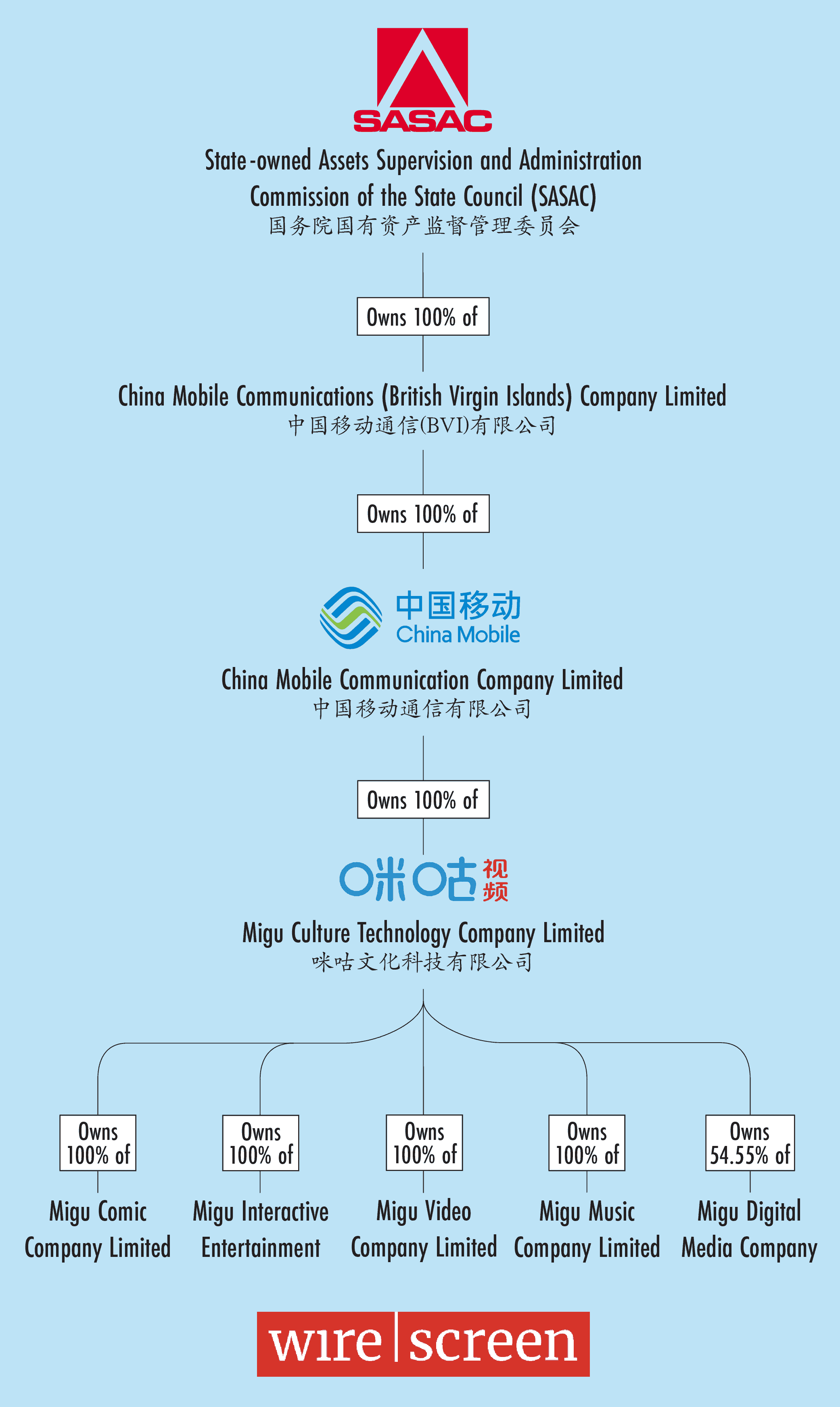
Migu was a late arrival at the online entertainment party compared with major Chinese tech firms: Alibaba’s Youku has been around since 2003, while Baidu launched iQiyi in 2010, and Tencent set up Tencent Video in 2011. Even so, Migu platforms managed to amass a total user base of 500 million in their first year, according to China Mobile’s 2015 Sustainability Report.
As China Mobile has shifted its focus to developing 5G technologies and networks, Migu Video has sought a future in VR. In early 2017, it announced a partnership with San Francisco-based technology firm Osterhout Design Group (ODG) to help bring VR and other smart glasses to China. That collaboration fell through following ODG’s closure in 2019. Undeterred, Migu Video formed a new alliance in 2020 with Hong Kong-based Pico+, a subsidiary of Pico Far East Holdings, with the aim of distributing VR content such as virtual conferences and exhibitions.
SPORTS STREAMING
While Migu Video has developed partnerships with groups such as BBC Studios and iQIYI to produce and distribute television shows and movies, it has garnered most of its rights in the world of sports.

In 2018, the company secured a sub-licensing deal alongside Youku with state-owned broadcaster CCTV to show the Russia World Cup, with Youku paying 1.6 billion yuan ($242 million), and Migu 1 billion yuan ($151 million). That same year, Migu became an official partner of the NBA, the first North American sports league in their roster. That agreement gave the company the rights to stream game highlights, as well as to produce and sell NBA and Migu co-branded merchandise on its platform.
Many of the contracts that Migu signs are not exclusive deals: The company often sub-licenses content from CCTV. Its strategy has been to expand its appeal to users by providing extra content. As one example, for the Beijing Winter Olympics earlier this year it created ‘Meet Gu’, a digital avatar of freestyle skier Eileen Gu. While Gu was competing, her avatar ‘Meet Gu’ was able to engage virtually with fans, commentating and even selling merchandise.
Migu Video attracted a staggering 34 billion cumulative views for the Winter Games and related programming, almost three times the number for its streaming of the Summer Olympics in Tokyo last year. Having renewed and locked in multiyear contracts with several of its partners, from the World Equestrian Championships to Spain’s La Liga soccer tournament, the Migu Video platform looks set to remain China’s go-to hub for sports streaming.
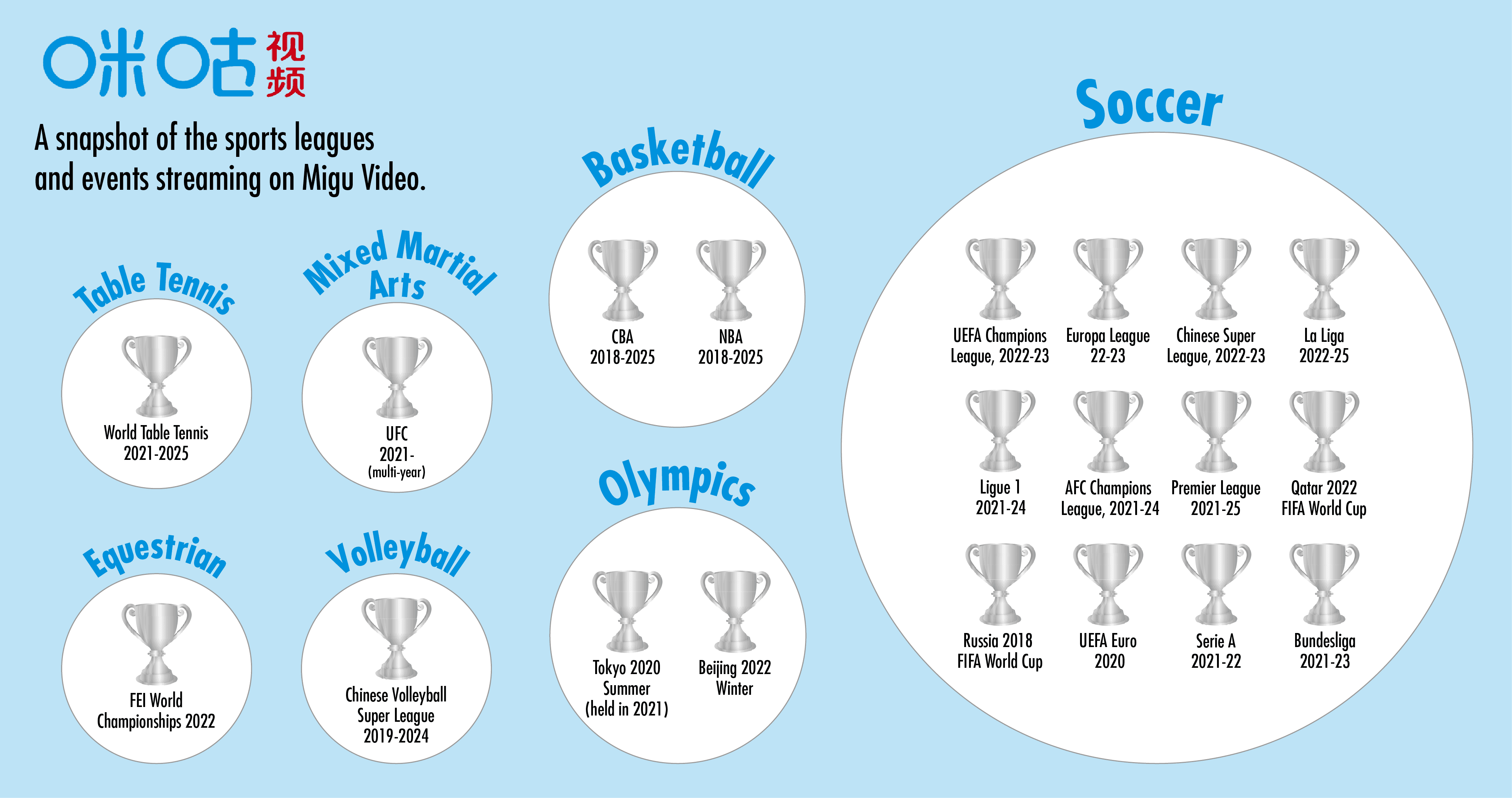
CCTV CONTROVERSY
Migu Video’s relationship with CCTV has proved to be fruitful in terms of securing licensing deals since 2018. Still, partnering with a state-controlled entity has not been without its hurdles, and Migu has often taken steps to mirror CCTV’s responses to controversy.
After former Houston Rockets’ General Manager Daryl Morey tweeted in support of the 2019 Hong Kong protests, CCTV suspended its coverage of NBA games: Migu followed suit, announcing it would halt its NBA broadcasting and investigate its relationship with the organization in October that year. CCTV ended its suspension earlier this year following a lengthy blackout.
More recently, the CCTV has been at the center of online criticism both inside and outside China regarding its coverage of the Qatar World Cup, with accusations made on both Twitter and Weibo that it has intentionally avoided close-up shots of the crowd and blurred maskless attendees at the matches, perhaps because the state-backed broadcaster does not want to highlight the differences that exist with the nation’s zero Covid policy.

Ella Apostoaie is an editorial associate at The Wire. She is a 2021 graduate of Wellesley College, where she majored in East Asian Studies, with a primary focus on Chinese history and politics. Ella grew up in Norwich, England and is now based in the Boston area.

